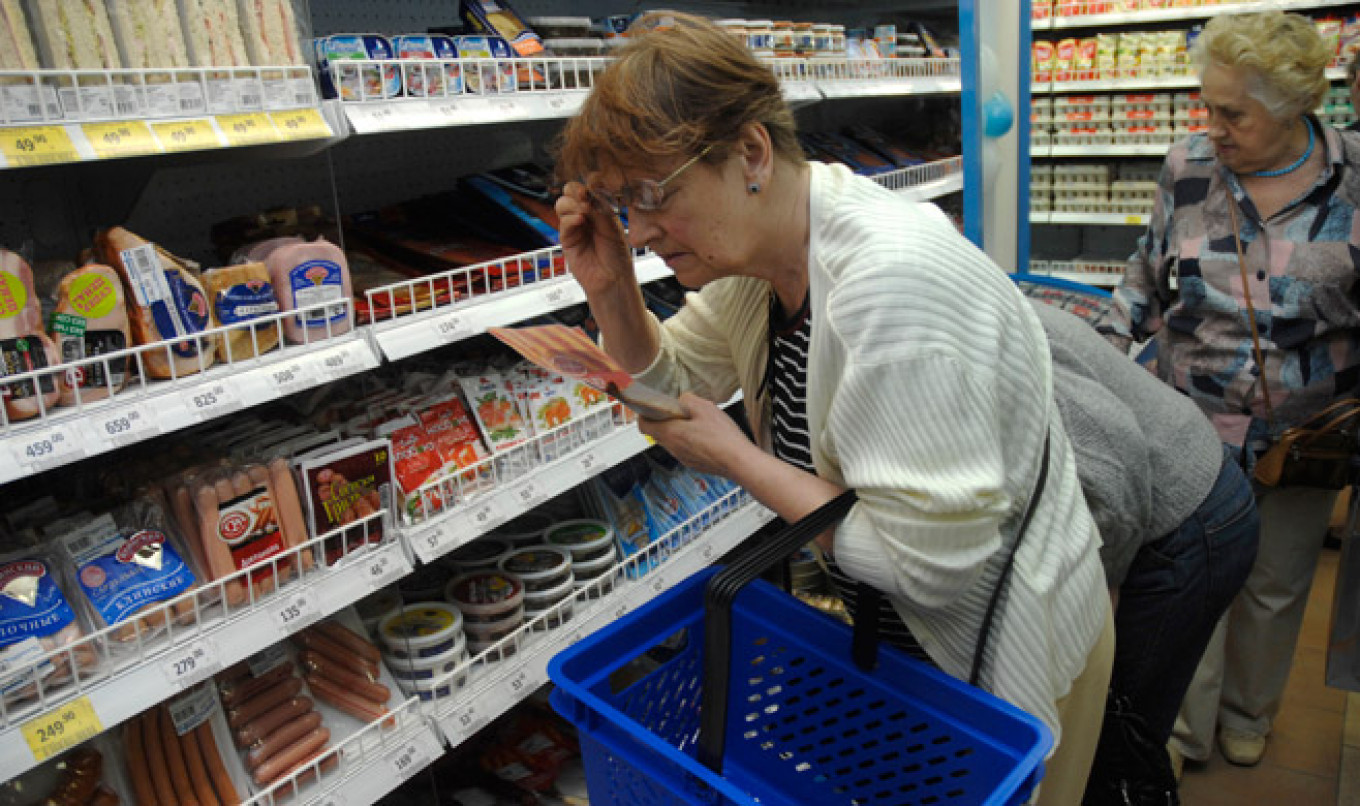Economy
Bust Inflation. Grocery Store

|
|
Food prices have surged since 2020. It’s not your imagination. Egg price rose by 28.9%, with beef chuck roast well over 38%, and sugar by 13.5%. Milk’s price has gone up by approximately 7.1% and coffee(a staple for me) a whopping 12.8% and climbing.
The Grocery Stores we buy from have no good news for us, just price hikes making our daily lives more difficult to bear. We can argue whether those Retail Grocery Chains we shop at are affected by supply chain cost increases, or because of the pandemic’s effect on staffing levels, or that these retailers see an opportunity and excellent excuse to increase prices and profits. I have spoken to several different meat purveyors and assistant store managers who have told me that some items in their departments are artificially made scarce, difficult to find and therefore more expensive, or that they are given schedules that increase the price of meat just like the price of gas.
Talking about petroleum, have you seen the circus that is known as your local gas station? Like the stock market, the prices usually go up and drop in the middle of the week, usually late in the day. I once saw the price in a local station change three times within two hours. Well those of us who travel for work, having been called back by our employers, have and will continue to suffer fueling costs that may increase a further 25% before the summer arrives. Between the taxes applied, and the profiteering of the industry we will all reevaluate our summer holidays day trips and vacations. Waist not, want not.
Those of us who are not independently wealthy, are being forced to return to an older tradition, one our parents and grandparents wanted to pass on to us, but we were flush with money at the time. Glad I listened.
Planning your day. Using coupons, seeking out sales and discounted products. Researching and panning like never before. I know where I go shopping every two weeks, and this routine is set in stone.
In Canada, I visit No Frills, and Food Basics followed by many Asian Based Retailers. Fresh produce, green veggies and meat prices that do not require a mortgage. In the US I prefer Wegmans(like Canada’s Metro) and we visit much local meat and grocery purveyors. You can talk to them, ask for specific items and when the prices may reflect your budget. Relationships count especially these days of austerity.
Opt for store brands, which are usually 25-33% cheaper than national brand products. Also, have you noticed that national brand products charge you the same or more for the product that is lighter, thinner and often missing ingredients once there?
Look for inflationary-proof foods like macaroni and spaghetti, white flour, local cheeses, local pastries, and frozen foods. Are fresh veggies too costly? Go to the frozen food section and purchase bulk bags of veggies, meats and other products that only need to be unfrozen and cooked. These are often less costly than fresh products. When the summer arrives, may I suggest you go to your local farmers, and develop a relationship with them? Fresh products right out of the pen or fields. Get to know your food intimately by perhaps picking it. Fresh veggies and fruit abound you will just need to look for them. Local is always better when available.
There is no shame in using coupons or seeking out discounted products. No social shame, just good shopping etiquette. Happy shopping.
Steven Kaszab
Bradford, Ontario
skaszab@yahoo.ca
Economy
China Wants Everyone to Trade In Their Old Cars, Fridges to Help Save Its Economy
|
|


China’s world-beating electric vehicle industry, at the heart of growing trade tensions with the US and Europe, is set to receive a big boost from the government’s latest effort to accelerate growth.
That’s one takeaway from what Beijing has revealed about its plan for incentives that will encourage Chinese businesses and households to adopt cleaner technologies. It’s widely expected to be one of this year’s main stimulus programs, though question-marks remain — including how much the government will spend.




Economy
German Business Outlook Hits One-Year High as Economy Heals
|
|


German business sentiment improved to its highest level in a year — reinforcing recent signs that Europe’s largest economy is exiting two years of struggles.
An expectations gauge by the Ifo institute rose to 89.9. in April from a revised 87.7 the previous month. That exceeds the 88.9 median forecast in a Bloomberg survey. A measure of current conditions also advanced.
“Sentiment has improved at companies in Germany,” Ifo President Clemens Fuest said. “Companies were more satisfied with their current business. Their expectations also brightened. The economy is stabilizing, especially thanks to service providers.”
A stronger global economy and the prospect of looser monetary policy in the euro zone are helping drag Germany out of the malaise that set in following Russia’s attack on Ukraine. European Central Bank President Christine Lagarde said last week that the country may have “turned the corner,” while Chancellor Olaf Scholz has also expressed optimism, citing record employment and retreating inflation.
There’s been a particular shift in the data in recent weeks, with the Bundesbank now estimating that output rose in the first quarter, having only a month ago foreseen a contraction that would have ushered in a first recession since the pandemic.
Even so, the start of the year “didn’t go great,” according to Fuest.
“What we’re seeing at the moment confirms the forecasts, which are saying that growth will be weak in Germany, but at least it won’t be negative,” he told Bloomberg Television. “So this is the stabilization we expected. It’s not a complete recovery. But at least it’s a start.”
Monthly purchasing managers’ surveys for April brought more cheer this week as Germany returned to expansion for the first time since June 2023. Weak spots remain, however — notably in industry, which is still mired in a slump that’s being offset by a surge in services activity.
“We see an improving worldwide economy,” Fuest said. “But this doesn’t seem to reach German manufacturing, which is puzzling in a way.”
Germany, which was the only Group of Seven economy to shrink last year and has been weighing on the wider region, helped private-sector output in the 20-nation euro area strengthen this month, S&P Global said.
–With assistance from Joel Rinneby, Kristian Siedenburg and Francine Lacqua.
(Updates with more comments from Fuest starting in sixth paragraph.)




Economy
Parallel economy: How Russia is defying the West’s boycott
|
|


When Moscow resident Zoya, 62, was planning a trip to Italy to visit her daughter last August, she saw the perfect opportunity to buy the Apple Watch she had long dreamed of owning.
Officially, Apple does not sell its products in Russia.
The California-based tech giant was one of the first companies to announce it would exit the country in response to Russian President Vladimir Putin’s full-scale invasion of Ukraine on February 24, 2022.
But the week before her trip, Zoya made a surprise discovery while browsing Yandex.Market, one of several Russian answers to Amazon, where she regularly shops.
Not only was the Apple Watch available for sale on the website, it was cheaper than in Italy.
Zoya bought the watch without a moment’s delay.
The serial code on the watch that was delivered to her home confirmed that it was manufactured by Apple in 2022 and intended for sale in the United States.
“In the store, they explained to me that these are genuine Apple products entering Russia through parallel imports,” Zoya, who asked to be only referred to by her first name, told Al Jazeera.
“I thought it was much easier to buy online than searching for a store in an unfamiliar country.”
Nearly 1,400 companies, including many of the most internationally recognisable brands, have since February 2022 announced that they would cease or dial back their operations in Russia in protest of Moscow’s military aggression against Ukraine.
But two years after the invasion, many of these companies’ products are still widely sold in Russia, in many cases in violation of Western-led sanctions, a months-long investigation by Al Jazeera has found.
Aided by the Russian government’s legalisation of parallel imports, Russian businesses have established a network of alternative supply chains to import restricted goods through third countries.
The companies that make the products have been either unwilling or unable to clamp down on these unofficial distribution networks.




-



 Health23 hours ago
Health23 hours agoRemnants of bird flu virus found in pasteurized milk, FDA says
-
News19 hours ago
Amid concerns over ‘collateral damage’ Trudeau, Freeland defend capital gains tax change
-
Art23 hours ago
Random: We’re In Awe of Metaphor: ReFantazio’s Box Art
-
Art17 hours ago
The unmissable events taking place during London’s Digital Art Week
-
Tech24 hours ago
Surprise Apple Event Hints at First New iPads in Years
-



 Politics21 hours ago
Politics21 hours agoHow Michael Cohen and Trump went from friends to foes
-
Science22 hours ago
NASA hears from Voyager 1, the most distant spacecraft from Earth, after months of quiet
-
Media22 hours ago
Vaughn Palmer: B.C. premier gives social media giants another chance











